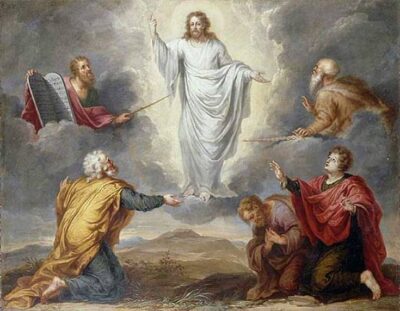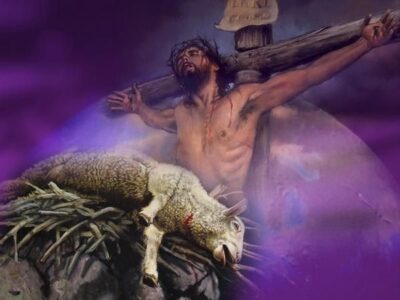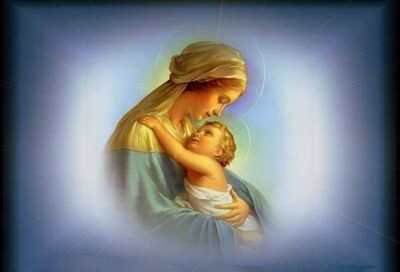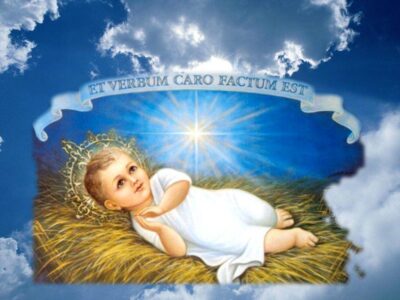February 5, 2023
|by N W
|
0 Comments
|
Commitment, Discipleship, Father Nixon, Light, Mission
Fifth Sunday in Ordinary Time
February 5, 2023 — Year A
Readings: Is 58:7-10 / Ps 112 / 1 Cor 2:1-5 / Mt 5:13-16
by Rev. Nixon Negparanon, Pastor
Pierre Charles, the son of St. Ignatius of Loyola once asked, “How can I see Christ if I do not see Him in Christians?”
Also, the German philosopher, Friedrich Nietzsche, once wrote, “If Christians wish us to believe in their Redeemer, why don’t they look a little more redeemed?”
What is the greatest hindrance to Christianity in our country? This is a question that is bound to elicit a variety of answers, depending on whom you ask. Possible answers might include mass media, popular culture, materialism, bad government policies, other religions, etc.
Jesus said to us in today’s gospel, “You are the salt of the earth and the light of the world.” Both salt and light are indispensable in our daily lives. Without them, we have major problems. We use salt to prepare delicious meals, and we rely on light to go about our normal activities. These two, salt and light, symbolize how we act and live as Christians in the world, to others, and also to ourselves.
Jesus did not say, “You should be…” or “You have to be like…” He said, “You are.” This is already the nature and the characteristic of a Christian. That is, to give good examples to somebody, so that, as the gospel says, “They may see your goodness.” They will see the goodness in your acts and they will give praise to your Heavenly Father, and not to your own self.
That is why, when I say something nice, or I say I appreciate someone, they respond to me, “Praise be to God, Father.” That really humbles me. Yes, we are so proud if someone praises us, and that is normal, but let these praises lead us to pray, praise, and thank God, who is the giver and author of all real talents and abilities.
In today’s gospel, Jesus says to His disciples, “You are the light of the world.” (Matthew 5:14) But elsewhere in John 8:12, Jesus says of Himself, “I am the light of the world.” So, who, then, is the light of the world, Jesus or His followers? This apparent contradiction can be solved by another passage in John 9:5, where Jesus modifies His statement about Himself. He said, “As long as I am in the world, I am the light of the world.”
This shows that Jesus is talking about the flesh and blood as the embodiment of the light. As long as He is physically present in the world, He is the light of the world. But when He is no longer physically present, His followers will assume the role of being the light of the world.
The role of the Christian can be defined with two words in today’s gospel: salt and light. Now, what do these mean? Do you know that the word “sugar” never occurs in the Bible? In ancient times, salt was the ultimate seasoning that gave taste to food. Without salt, food would be tasteless. Jesus is saying that as salt is to food, so are Christians to the world. Christians are in the world to make it a better place.
How can we make the world a better place? We find the answer in the parallel passage in Mark that says, “Have salt in yourselves and be at peace with one another.” (Mark 9:50) As salt, we are called to be good disciples, friendly and kind, living at peace with everybody. As light, we are called to show the way. Without light, we bump into each other and fall into the ditch. But light says, “Here is the road: take it. Here is the danger: avoid it.” Without light and salt, the world would be in very bad shape, uninteresting, and impossible to live in. With light and salt, the world becomes a safer and better place. It is our duty as Christians to make the world a better place.
The Church tells us today how to do it: the same way that salt and light do it. First, salt must be different from the food before it can be of use. If salt loses its taste, it is useless, and can no longer make a difference. Light must be different from darkness in order to be of help. A flashlight with a dead battery is no good for someone in the dark. Being the salt and the light of the world means being different from the world. If believers have nothing that distinguishes them from the nonbelievers, then they are like salt that has lost its saltiness, and therefore cannot make a difference.
And what distinguishes us from nonbelievers should not be so much what we claim to be, or the badges and pins we wear, but the lives we live. As Jesus says in John 13:35, “By this everyone will know that you are my disciples: if you have love for one another.” Love is the distinctive mark by which you can tell the true Christian from the false.
Secondly, both salt and light operate by associating with the thing they want to change. Salt cannot improve the food unless it goes into the food and changes it from within. Light cannot show the way unless it encounters darkness.
Sometimes Christians think that the way to go is to keep away from getting involved with society and popular culture. But by shying away from the realities of our society and our world, we might indeed be hiding our lamp underneath a bushel basket. To make a difference, we must get up and get involved.
Today’s gospel is frightening. It says, in effect, that if there is so much darkness and bitterness in the world today, it is because we, as Christians, have failed in our job to be salt and light in the world. But we can decide to make a difference starting from today. We can decide to light a candle, rather than curse the darkness. Even the smallest candle helps in a world of darkness. This is our task; this is our challenge; this is our mission; and this is our goal.
KEEP READING
 540-586-8988
540-586-8988 










